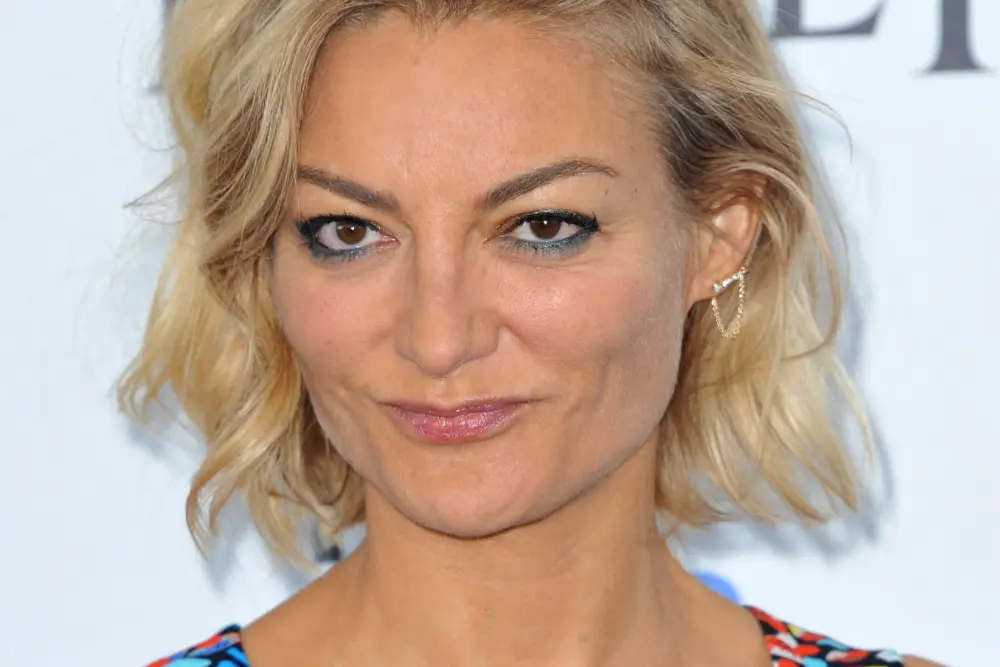Recognizing the brilliance of British director Lucy Walker, both as a filmmaker and as an advocate for the documentary format, Shekhar Kapur hurriedly arranged an additional masterclass on Saturday at the International Film Festival of India, where he is festival director. And hosted the session himself.
Their conversation ranged from technology and technique through to the filmmaker’s responsibility towards the subject. In particular, it dug deep into how and where to find a story.
After an era of editing with film stock, Walker said that around the time she went to film school computer editing came in and changed the game. “You could start to be able to build stories in the editing room. And do some of the writing later. You [still] have to choose good enough ingredients for your recipe. But I felt like the tools [offered] different options, allowing you to create a proper movie that audiences would find really satisfying, even if at the beginning you didn’t know where you’re going. It is exciting, letting life be your co-writer. It is [also] risky like a high wire.”
“[Sometimes] it feels like observing, almost like sneaking up on life and catching it, watching life happen on camera, and then sharing with people,” Walker said.
Popular on Variety But Walker denied that documentary is free-form or can escape the necessities of storytelling.
“Having a beginning, middle and end is really important in documentary. I’m always thinking about those ingredients even if I don’t know what the end will be,” she said. “For example, I’ve made two films now about climbing a mountain. At the beginning, when you go to climb a mountain, you don’t know if it’s a difficult mountain, like Mount Everest in my recent film [‘Mountain Queen: The Summits of Lakhpa Sherpa’], or in my first mountain film, where I was making a film about blind people climbing [2006’s ‘Blindsight’]. We didn’t know if they would get to the top, if someone might get hurt, we didn’t know what was going to happen. But I did know that I wanted to know.”
Kapur quizzed her about the responsibility of taking a dozen blind people on a tricky climb. But her answer reflected equally on the art of storytelling.
“Sometimes I think people think making documentaries is easy, because [we know that] it’s very difficult to make a scripted movie with actors and sets and costumes. But it’s also very difficult to make a documentary, for exactly this reason, because people are real. This is their life and you are asking people to share their secrets. I have been with people in these most vulnerable and sometimes really scary moments in their lives. Everest is one example. But I’ve also been filming with people when they get medical results and it might be a terminal diagnosis.”
But having embarked on the journey Walker has frequently found multiple different answers and a story that was not the one she had imagined.
“[In ‘Blindsight’ the story started to bubble up and become [a series of] more interesting question. Like, why does the American guy want to stand on top of the mountain? Tibetan people naturally walk around a mountain, and they appreciate the beauty of the mountain by looking up. They don’t need to stand on top. What is it with Americans wanting to kill themselves by standing on top? The teacher of the blind students was a German blind woman. She had a different idea. She’s like, ‘I don’t want to stand on top. I want just to have a nice time together.’
“So sometimes, you can find a story that has even more meaning. But when things don’t go according to the plan, it can be a little bit scary for the movie’s investors.”
Part of her taking responsibility in “Mountain Queen” involved knowing when to get out of the way and not become either a burden to the climbers or cause an accident. Instead, she delegated and trained the sherpas to become camera operators.
“The key is teamwork. This is not a solo sport,” she said. It was unclear if the comment was about climbing or filmmaking.

 Italian
Italian







